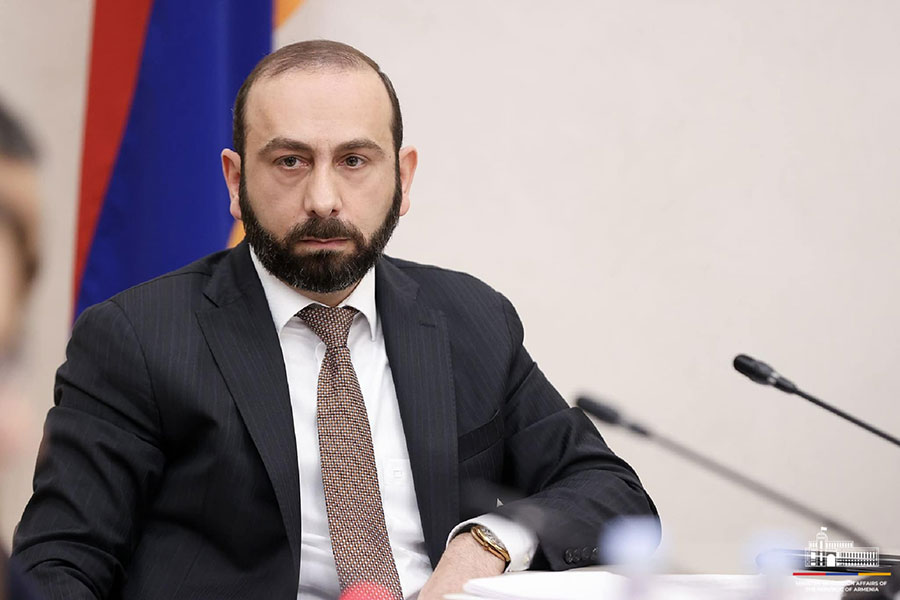Foreign Minister Ararat Mirzoyan on Friday did not deny the Armenian government’s plans to hand over more border areas to Azerbaijan, echoing Prime Minister Nikol Pashinian’s claims that they are not part of Armenia’s internationally recognized territory.
Pashinian signaled on Tuesday his readiness to accept Baku’s demands for Armenian withdrawal from four villages which were controlled by Azerbaijan in Soviet times and occupied by the Armenian army in 1991-1992. He did not make their handover conditional on the liberation of any Armenian territory occupied by Azerbaijani forces in the early 1990s and 2021-2022.
The Armenian opposition portrayed his statements as the clearest indication yet that Pashinian is planning to cede the ruined villages, located inside Armenia’s northern Tavush province, to Azerbaijan without getting anything in return.
“They are simply putting aside the border delimitation and demarcation process and Azerbaijan’s statements that it will not cede any territory seized from Armenia,” Tigran Abrahamian, a senior lawmaker from the opposition Pativ Unem bloc, told RFE/RL’s Armenian Service. “In this situation, any unilateral concession by the Armenian authorities … will go against the interests of Armenia and its people.”
Read also
Meanwhile, other opposition lawmakers pressed Mirzoyan on the subject as he met with members of the Armenian parliament’s standing committee on foreign relations. The minister responded by essentially repeating what Pashinian said.
Just like Pashinian, Mirzoyan gave no indications that Azerbaijan is ready to withdraw from any of the more than 200 square kilometers of Armenian territory which Yerevan says remains occupied by it. He also admitted that Baku is still unwilling to use Soviet military maps for delimiting the Armenian-Azerbaijani border.
“The process of mutual recognition of territorial integrity and subsequent border delimitation must be based on the Almaty declaration,” he said, referring to a 1991 document that committed newly independent ex-Soviet republics to recognizing their Soviet-era borders.
“There is more mutual understanding on this issue now than, for example, a month ago,” added Mirzoyan. “At least at the moment, I have the impression that we are very close to reaching a mutual agreement on this issue.”
The remarks contrasted with what Mirzoyan told the official Turkish Anadolu news agency last week. He said Baku and Yerevan continue to disagree on the “delimitation principles.”




















































